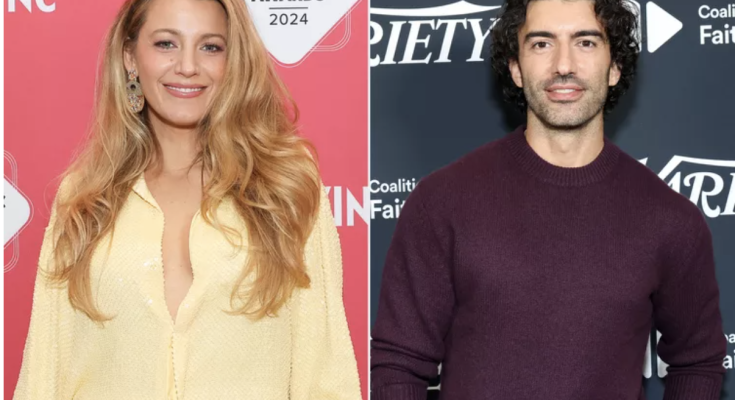Lively’s allegations center on astroturfing, a tactic that manipulates public opinion by creating a false impression of grassroots support or opposition
:max_bytes(150000):strip_icc():focal(748x188:750x190):format(webp)/Blake-Lively-and-Justin-Baldoni-tout-122424-tout-d3e42fc2eb0049c6abd11f72abbfc933.jpg)
Blake Lively is at the center of a legal battle that sheds light on a controversial PR tactic known as astroturfing. In a complaint filed last Friday, the It Ends with Us actress accused her co-star and director, Justin Baldoni, of sexual harassment and alleged that his PR team orchestrated a calculated, retaliatory smear campaign to damage her reputation and disrupt her businesses.
At the core of Lively’s allegations is astroturfing—a strategy designed to manipulate public opinion by creating the illusion of grassroots support or backlash. The complaint claims that Baldoni’s crisis PR firm, The Agency Group (TAG PR), coordinated social media efforts to portray her as “controlling” and “difficult” during the film’s production.
In a statement shared on Monday, Dec. 23, lawyer Bryan Freedman defended Baldoni’s crisis publicists at The Agency Group (TAG PR), stating that they “operated as any other crisis management firm would when hired by a client experiencing threats by two extremely powerful people with unlimited resources,” and emphasizing that they were simply doing their job.
PEOPLE previously reported in August that Baldoni brought on crisis PR manager Melissa Nathan—known for representing Johnny Depp during his high-profile legal battles— and worked with publicist Jennifer Abel amid the release of his movie adaptation of Colleen Hoover’s bestseller.
In a statement given to The New York Times, Lively shared her motivations for filing the complaint, saying, “I hope that my legal action helps pull back the curtain on these sinister retaliatory tactics to harm people who speak up about misconduct and helps protect others who may be targeted.”
Baldoni’s legal team pushed back on the claims, with Freedman telling PEOPLE that the allegations were “false” and “intentionally salacious with an intent to publicly hurt.”
:max_bytes(150000):strip_icc():focal(234x0:236x2):format(webp)/blake-livley-470-4f0a531837bf41ca8197ff3c73187399.jpg)
What Is Astroturfing?
Astroturfing is named after synthetic grass, and it mimics grassroots movements to create the illusion of public consensus. Dr. Joan Donovan, a Boston University professor and expert on disinformation, told PEOPLE, “It’s about faking a crowd. When social media accounts—whether fake or real—are coordinated to push a narrative, it’s astroturfing. These campaigns aren’t organic. They’re designed to look like genuine public opinion, but they’re completely manufactured.”
Dr. Chico Camargo, a research associate at the Oxford Internet Institute, notes that astroturfing tactics have evolved alongside social media. “It’s not just bots anymore. Real people are often paid or incentivized to post coordinated content,” Camargo says. “This makes it harder to distinguish genuine engagement from fabricated campaigns.”
He added, “Astroturfing goes back as far as propaganda itself. Spreading a rumor is an early form of it. The honest way to do crisis management, for example, would be putting out a statement or addressing issues directly. But then you have gray areas, like sending someone to an event to make them look good or like they support certain causes.”
He continued, “You see it a lot in politics—getting a crowd to welcome a candidate to make it look like they’re loved. Whether it’s corporate politics, sports, or even Hollywood, you’ll see astroturfing. For example, if you want buzz around a movie, you might pay people to show up at a theater or post on social media with a hashtag to get things going. Even though that sounds harmless, it’s still astroturfing.”
Weaponizing Misogyny
The complaint alleges that TAG PR exploited misogynistic stereotypes to fuel the smear campaign against Lively. According to experts, this tactic is common in Hollywood and beyond.
“PR firms know how to tap into stereotypes,” Donovan explains. “In this case, it’s the trope of women in power being controlling or demanding. These narratives resonate with audiences predisposed to believe them, and astroturfing amplifies them to devastating effect.”
Donovan draws parallels to alleged tactics used during the Johnny Depp and Amber Heard trial, where coordinated narratives disproportionately targeted Heard. “Misogyny on social media is rampant,” Donovan says. “PR firms know this and use it to their advantage by leaning into these biases.”
:max_bytes(150000):strip_icc():focal(1999x0:2001x2):format(webp)/122324-amber-blake-soc-efe6f17c339b47dabec584f39f738d9f.jpg)



